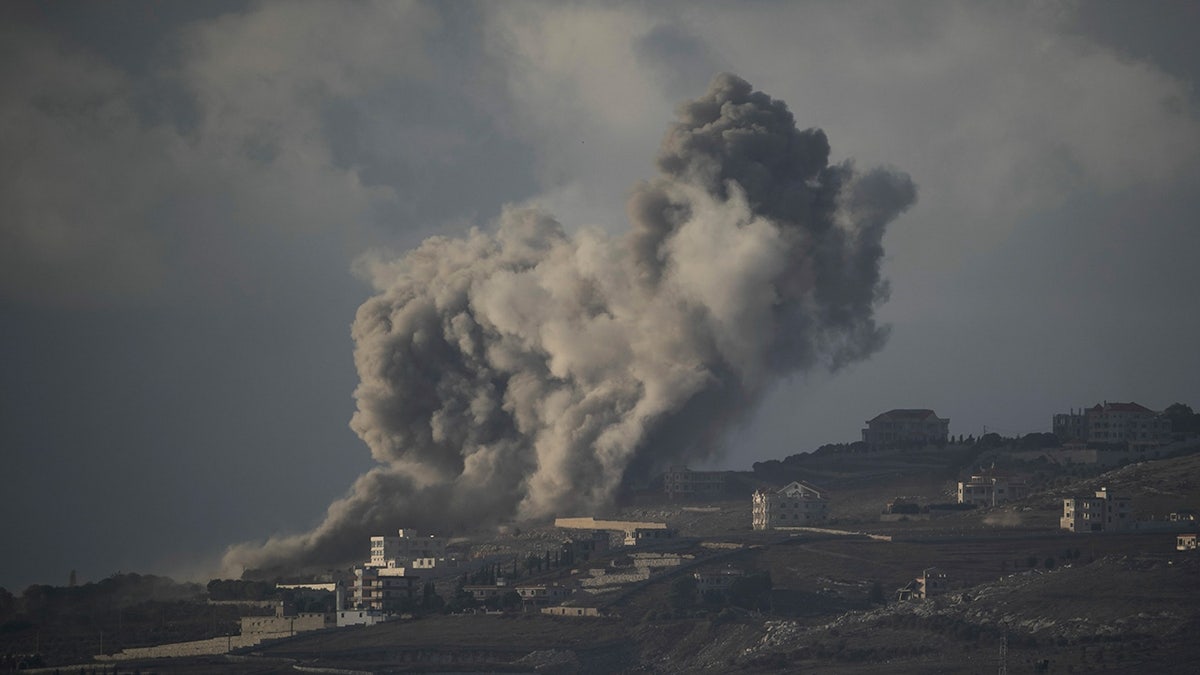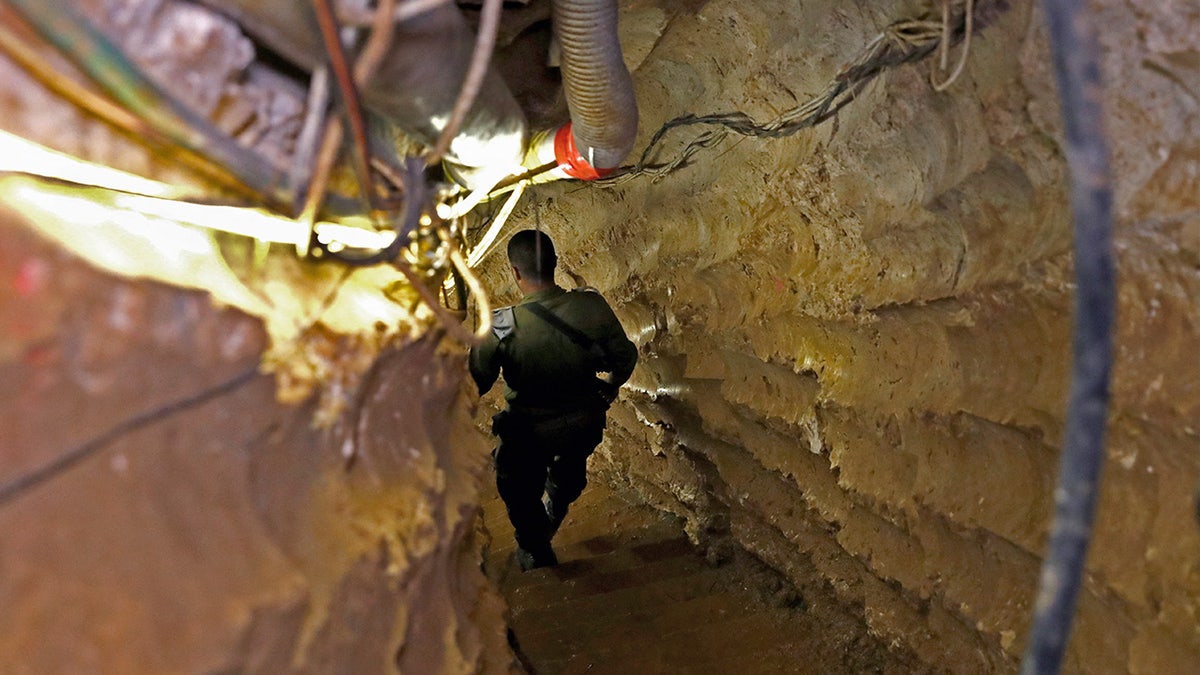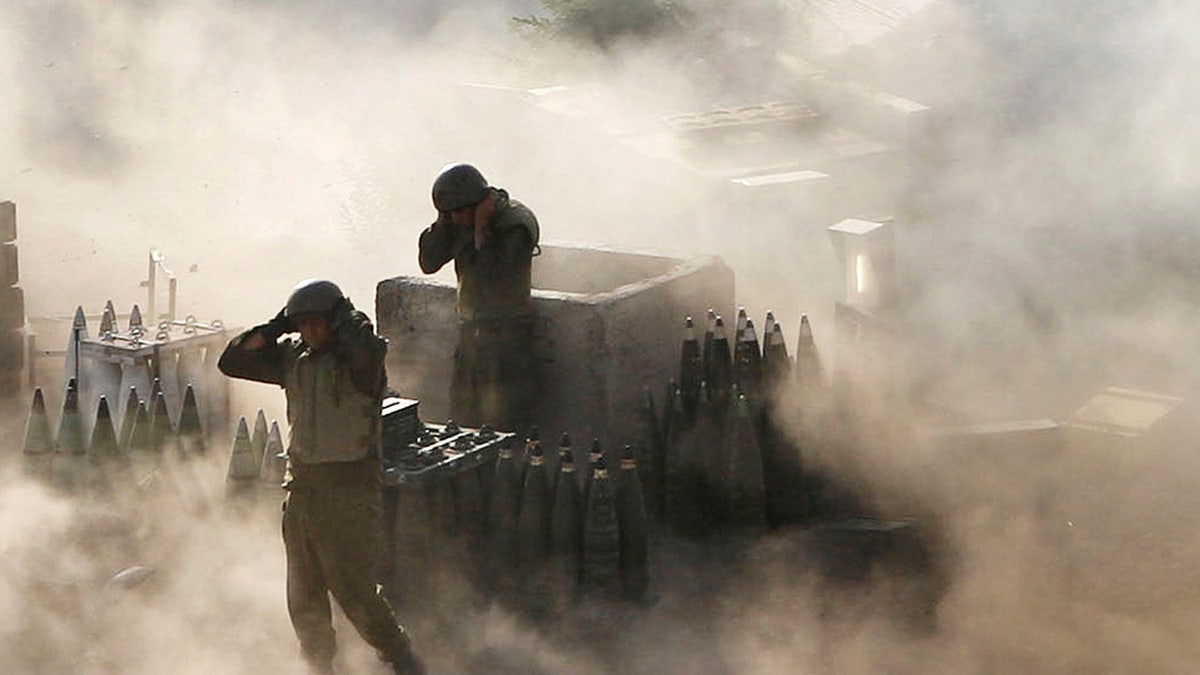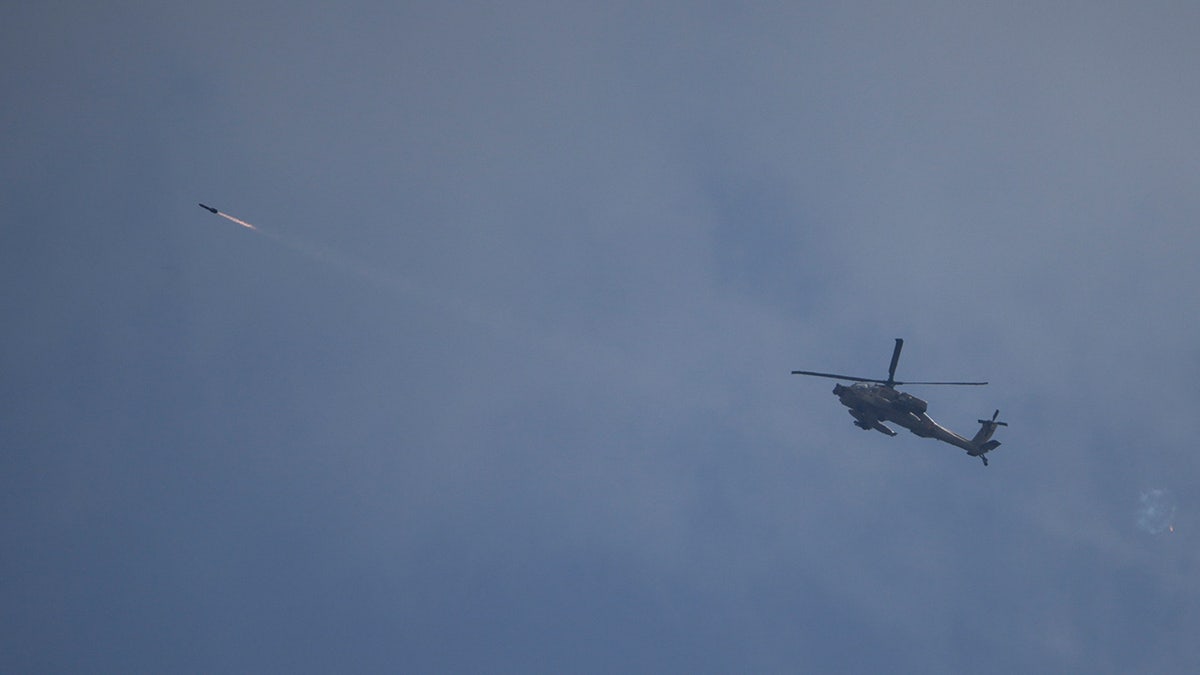The Israel Defense Force (IDF) has met little resistance since announcing its “limited” invasion of southern Lebanon early Tuesday morning local time, a move aimed to subvert Hezbollah’s buildup along the shared border.
Israel has been increasing its strikes for weeks against the terrorist organization in southern Lebanon, as well as with targeted strikes in Beirut.
On Tuesday, the IDF confirmed in a statement shared with Fox News Digital that since the Oct. 7, 2023, Hamas attacks in Israel – after which Hezbollah began striking military posts along Israel’s northern border – the IDF has conducted dozens of “targeted operations” to “dismantle Hezbollah’s terrorist capabilities” that pose a threat to civilians in the north.

Smoke rises following Israeli bombardment in southern Lebanon as seen from northern Israel, Tuesday, Oct. 1, 2024. (AP Photo/Leo Correa)
ISRAELI MINISTERS FRUSTRATED OVER US, IDF LEAK ON LEBANON OPERATION: REPORT
IDF spokesman Rear Adm. Daniel Hagari said Tuesday that IDF special forces have entered Hezbollah compounds in “dozens of locations” along the Israel-Lebanon border, collected intelligence and dismantled positional strongholds.
“Our soldiers entered Hezbollah’s underground infrastructures, exposed Hezbollah’s hidden weapon caches, and seized and destroyed the weapons, including advanced Iranian-made weapons,” Hagari said. “Overall, IDF soldiers exposed and dismantled over 700 Hezbollah terror assets during these operations. And there’s a lot more work to do.”
Since the war began nearly a year ago, Israeli special forces reportedly began conducting small raids in southern Lebanon, in some cases utilizing the very tunnels Israel seized from the terrorist group years prior, and renewed attention has been brought to how the Hezbollah network operates.
The terrorist group for years has relied on its heavy entanglement in civilian life, particularly in southern Lebanon, where it has rented civilian infrastructure to serve as weapons depots and even missile launcher sites. Civilian buildings have also been used to cover entrances to the group’s sophisticated tunnel network that is estimated to stretch over 100 miles in length cumulatively across the region.

The Israeli army shows the interior of a tunnel on the Israeli side of the border with Lebanon in northern Israel on June 3, 2019. (Jack Guez/AFP via Getty Images)
But despite the feared all-out war that had the potential to erupt upon Israel’s invasion of its northern neighbor, Hezbollah’s resistance has been minimal.
Security experts feared Hezbollah’s longtime backing from Iran would enable it to levy as many as 8,000 rockets per day in a worse case scenario, and its more than 50,000 operatives, including the elite Radwan forces, could pose a significant threat against an Israeli ground campaign.
Hagari confirmed to reporters Tuesday that IDF forces were actively working to dismantle Radwan infrastructure near the border in southern Lebanon.
“We need to take care of it because we will not let another 7th of October occur next to our border,” he said.
In the aftermath of the Oct. 7 attacks, the IDF assessed that some 2,400 Radwan terrorists, along with another 500 Palestinian Jihadists trained by the elite force, were positioned in villages across southern Lebanon poised to attack.
But the IDF on Tuesday also highlighted that Hezbollah failed to mount a counter force in response to Israel’s incursion.

Israeli artillery soldiers are surrounded by smoke and dust as they fire across the border into southern Lebanon from a position on the frontier in Zaura, northern Israel, on July 12, 2006. (AP Photo/Oded Balilty, File)
Jonathan Conricus, former IDF spokesperson and current senior fellow for the Foundation for Defense of Democracies (FDD), told Fox News Digital that Hezbollah’s near-complete lack of a counter force could be explained by several reasons.
“The IDF conducted hundreds of special operations during the last months to map and analyze Hezbollah’s hostile infrastructure in civilian houses in southern Lebanon, as well as targeted aerial campaigns against Hezbollah personnel,” he said. “Hezbollah terrorists sustained severe casualties and started to flee from southern Lebanon.
“It remains unclear how many Hezbollah militants remain in the south,” he added.
CLICK HERE TO GET THE FOX NEWS APP

An Israeli Apache helicopter fires a missile toward southern Lebanon as seen from northern Israel, Tuesday, Oct. 1, 2024. (AP Photo/Leo Correa)
Given the unknown number of terrorists who fled the south, most likely to other strongholds in Beirut and in central Lebanon, reporters questioned the current IDF spokesman if this could mean that Israel will need to expand its operations north.
“We’re not going to Beirut,” Hagari told reporters, emphasizing Israel’s stated goal to return its citizens to their northern homes. “We are focusing in the area of those villages, the area next to [the] border. And we will do, in this area, what is necessary to dismantle and demolish Hezbollah’s infrastructure.”
Hagari would not provide specifics on the operational timeline but said Israel’s campaign in Lebanon would be conducted in “days [to] weeks.”
